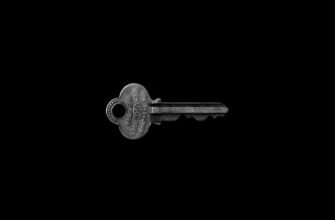Why Choosing the Right Bitcoin Wallet in Iran Matters
With Iran’s complex financial regulations and international sanctions, Bitcoin offers an alternative for transactions and wealth preservation. However, selecting the right wallet is critical. Iranian users face unique challenges: potential internet restrictions, privacy concerns, and limited access to global exchanges. A secure, non-custodial wallet ensures you control your keys while bypassing geographical barriers. Prioritizing privacy-focused tools helps protect against surveillance, making your choice pivotal for safe crypto management.
Top 5 Bitcoin Wallets for Iranian Users
Based on accessibility, security, and Iran-specific compatibility:
- Exodus (Desktop/Mobile)
Pros: User-friendly interface, supports 250+ coins, built-in exchange. Ideal for beginners. Works without VPN in most cases. - Trust Wallet (Mobile)
Pros: Binance-owned, decentralized, integrates with DApps. Allows direct P2P trades, crucial where exchanges are restricted. - Electrum (Desktop)
Pros: Lightweight Bitcoin-only wallet. Advanced features like cold storage support. Open-source and highly secure. - Samourai Wallet (Android)
Pros: Extreme privacy tools (e.g., Tor integration, coin mixing). Bypasses censorship via stealth mode. - Wasabi Wallet (Desktop)
Pros: CoinJoin for anonymizing transactions. Open-source with robust privacy. Requires Tor for Iranian access.
How to Choose Your Ideal Bitcoin Wallet
Consider these factors for Iran’s context:
- Self-Custody: Avoid custodial wallets—your keys, your coins.
- Privacy: Opt for wallets with Tor/VPN support to mask IP addresses.
- Accessibility: Ensure it works with limited bandwidth or via proxy.
- Ease of Use: Match complexity to your experience level.
- Open-Source: Prefer audited code for transparency.
Setting Up Your Wallet in Iran
Follow these steps securely:
- Download the wallet only from official sites (avoid third-party stores).
- Use a VPN/Tor during setup to bypass blocks.
- Write down your 12-24 word recovery phrase offline—never digitize it.
- Enable all security layers: PIN, biometrics, and encryption.
- Test small transactions first.
Security Best Practices for Iranian Holders
- Never share recovery phrases or private keys.
- Update software regularly to patch vulnerabilities.
- Use hardware wallets (e.g., Ledger) if obtainable locally.
- Verify addresses via QR codes to avoid clipboard malware.
- Isolate transactions from identifiable accounts.
FAQ: Bitcoin Wallets in Iran
1. Is Bitcoin legal in Iran?
Bitcoin operates in a gray area. While not banned, the government discourages its use for foreign exchange. Personal holdings are generally tolerated.
2. Can I use Coinbase or Binance in Iran?
Most global exchanges block Iranian users due to sanctions. Opt for non-custodial wallets like Trust Wallet or Exodus instead.
3. How do I buy Bitcoin in Iran?
Use P2P platforms (e.g., LocalBitcoins, Hodl Hodl) or local brokers. Trade cash, bank transfers, or goods—always escrow transactions.
4. Are hardware wallets available in Iran?
Importing devices like Trezor is difficult. Consider open-source mobile/desktop wallets or use air-gapped cold storage methods.
5. What if my wallet gets blocked?
Wallets like Samourai or Wasabi with Tor integration bypass blocks. Pair with a reliable VPN for uninterrupted access.
Choosing the right Bitcoin wallet in Iran balances accessibility, privacy, and sovereignty. Prioritize non-custodial solutions with strong encryption, and always layer security measures. Stay informed on regulatory shifts to adapt your strategy.








